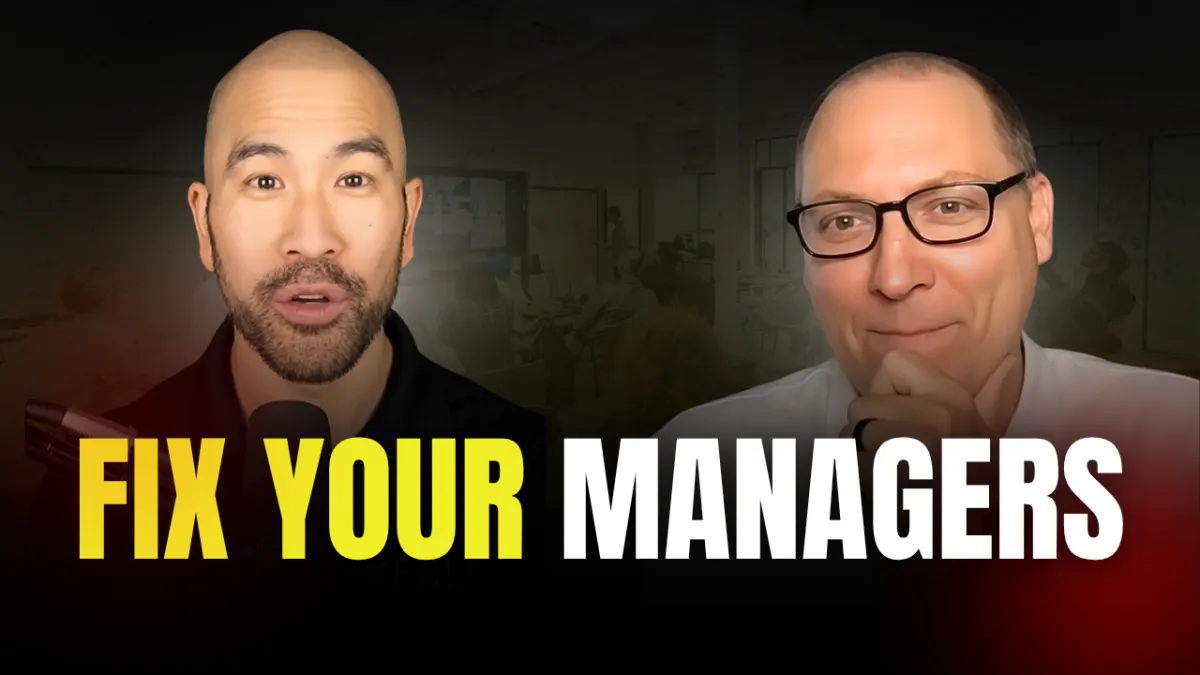
Why Leadership Is Only Hard For Good Leaders
Most organizations promote their best salesperson and wonder why their team falls apart six months later.
I sat down with Frank Ziede, who's trained leadership teams at Tesla, BMW, Rivian, and Colgate. He dropped a truth bomb that explains why this keeps happening:
"Leadership is only hard for good leaders."
Bad leaders have it easy. They don't care enough to do the work. Good leaders?
They're drowning in the lonely, exhausting, selfless work of actually developing people.
Here's the problem. Nine times out of ten, someone gets promoted to leadership because they were the top performer. Not because they know how to coach, mentor, or lead.
So they step into the role thinking everyone should do exactly what they did. "I was number one. You don't do it as good as I do it. So do it my way."
That's not leadership. That's dictatorship.
The Real Difference: Leader vs. Manager vs. Boss
Frank runs an exercise in every training. He asks teams to define three words: leader, manager, and boss.
Leader: Hands off. Empowering. Leads by example.
Manager: Hands on. Micromanaging. "Do what I say, not what I do."
Boss: Shitty. Terrible. Aggressive. Diminishing. Insulting.
The word "boss" comes from an old Dutch word meaning "master." Leader comes from "laden," meaning "a guide."
Nobody wants to be a boss. But most new leaders are doing boss-like things because they don't know any better.
The mantra: People first. Product or process second.
Why Top Performers Fail As Leaders
I learned this the hard way when I first took over a sales org. I walked in thinking everyone should do what I did the way I did it.
My wife looked at me that night and said, "That's not a good approach. Maybe you should ask them what they think."
She was right.
When you're the top performer, you succeed in your own specific way. But your way worked for you because of your personality, your strengths, your natural wiring.
The people you're now leading? They're wired completely differently.
Frank uses the DISC behavioral assessment. It measures pace and focus.
I'm fast-paced and logic-focused. I make decisions quickly. I love checklists. Frank is people-focused. Emotion matters to him. He needs connection.
If I lead Frank the way I want to be led, I'd destroy him.
The platinum rule: Treat others the way they want to be treated, not the way you want to be treated.
That's exhausting. That's lonely. That's selfless. That's why leadership is only hard for good leaders.
What To Do About It
Frank's three-step process for giving feedback:
1. Whisper is a shout. Lower your voice when things get tense. Stay calm. That's how you maintain authority.
2. Seek to understand. Ask questions. Then ask more questions. Telling is not teaching.
3. Accountability. Come to a collective understanding of what went wrong, how to fix it, and check in regularly. Use "we" language.
One more thing: Accept all the blame when something goes wrong. Give away all the credit when something goes right.
You can spot good leaders immediately. Some nod vigorously at this. Others think it's stupid.
